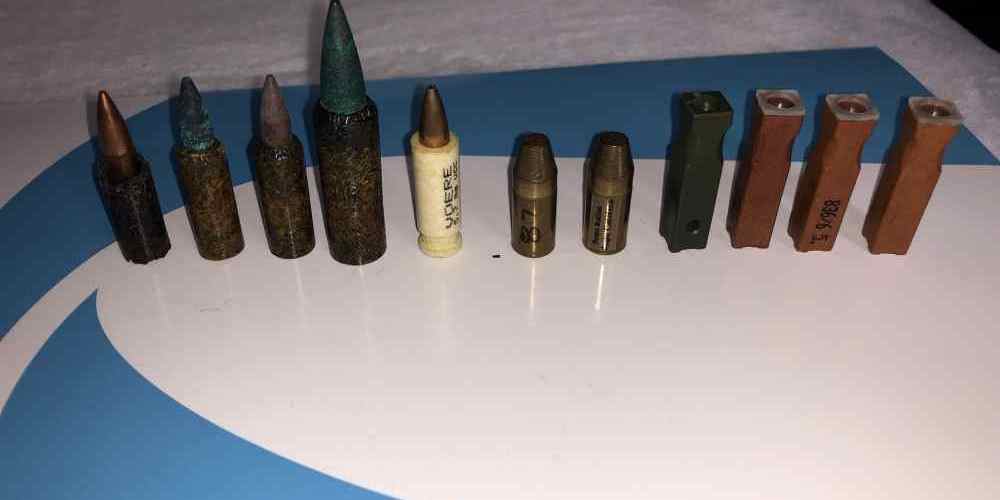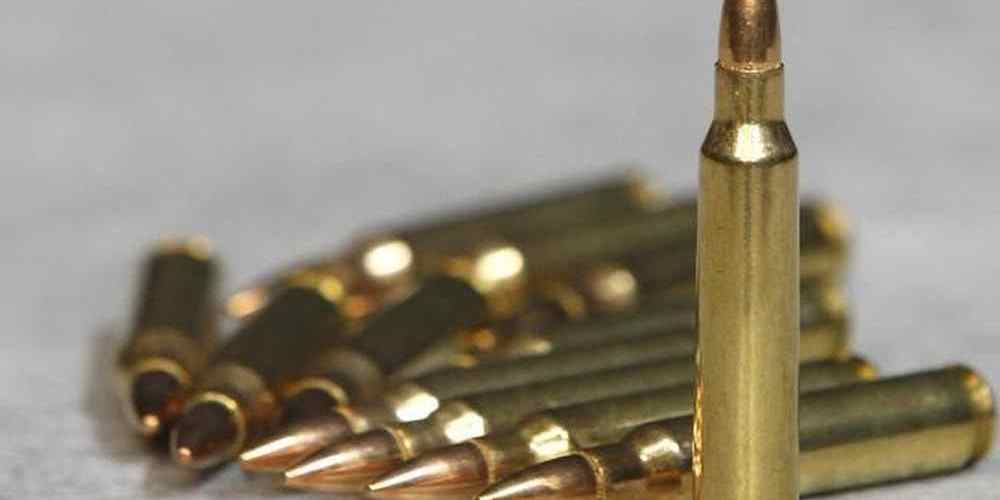“Barrel length matters: maximizing AR15 ammo performance.”
Accuracy
When it comes to AR15 rifles, one of the key factors that can impact the performance of the ammunition is the barrel length. The length of the barrel can have a significant effect on the accuracy of the rifle, as well as the velocity and energy of the bullets. In this article, we will explore the impact of barrel length on AR15 ammo performance, specifically focusing on accuracy.
Barrel length plays a crucial role in determining the accuracy of a rifle. A longer barrel typically results in better accuracy, as it provides a longer sight radius for the shooter. This allows for more precise aiming and better shot placement. Additionally, a longer barrel can also help to stabilize the bullet as it travels down the barrel, reducing the chances of it veering off course.
On the other hand, a shorter barrel can lead to decreased accuracy, as the sight radius is reduced, making it more difficult for the shooter to aim accurately. Additionally, the shorter length can also result in increased recoil, which can further impact the shooter’s ability to maintain accuracy.
In terms of AR15 rifles, the standard barrel length is typically around 16 inches. This length strikes a good balance between accuracy and maneuverability, making it a popular choice among shooters. However, some shooters may opt for longer barrels, such as 18 or 20 inches, in order to achieve even greater accuracy.
It is important to note that while barrel length can impact accuracy, it is not the only factor to consider. Other factors, such as the quality of the ammunition, the shooter’s skill level, and environmental conditions, can also play a role in determining accuracy. However, barrel length is certainly a key consideration when it comes to maximizing the accuracy of an AR15 rifle.
In addition to accuracy, barrel length can also impact the velocity and energy of the bullets. A longer barrel typically results in higher velocities, as the bullet has more time to accelerate before exiting the barrel. This can lead to increased energy and stopping power, making longer barrels a popular choice for shooters who prioritize performance.
Conversely, shorter barrels may result in lower velocities and energy levels, which can impact the effectiveness of the ammunition. However, some shooters may prefer shorter barrels for their compact size and ease of maneuverability, even if it means sacrificing some velocity and energy.
Ultimately, the impact of barrel length on AR15 ammo performance is a complex issue that depends on a variety of factors. While longer barrels generally result in better accuracy and higher velocities, shooters must also consider their own preferences and shooting style when selecting a barrel length.

In conclusion, barrel length plays a significant role in determining the accuracy of AR15 rifles. Shooters should carefully consider the impact of barrel length on ammo performance when selecting a rifle, taking into account factors such as accuracy, velocity, and energy. By choosing the right barrel length for their needs, shooters can maximize the performance of their AR15 rifles and achieve greater success on the range.
Velocity
When it comes to AR15 rifles, one of the key factors that can affect the performance of the ammunition is the barrel length. The length of the barrel plays a crucial role in determining the velocity at which the bullet travels, which in turn can impact accuracy and overall effectiveness. In this article, we will explore the impact of barrel length on AR15 ammo performance, specifically focusing on velocity.
The velocity of a bullet is directly related to the length of the barrel. In general, a longer barrel will result in higher velocities, while a shorter barrel will result in lower velocities. This is because the longer barrel allows for more time for the gunpowder to burn and propel the bullet forward. As a result, the bullet exits the barrel at a higher speed, which can lead to increased accuracy and range.
For AR15 rifles, the standard barrel length is typically around 16 inches. This length is considered to be a good balance between velocity and maneuverability, making it a popular choice among shooters. However, some shooters may opt for longer barrels, such as 18 or 20 inches, in order to achieve higher velocities and better long-range performance.
On the other hand, shorter barrels, such as 10 or 14 inches, are also available for AR15 rifles. While these barrels may offer increased maneuverability, they can result in lower velocities and reduced accuracy. This is because the shorter length does not allow for as much time for the gunpowder to burn, leading to a slower exit speed for the bullet.
When choosing a barrel length for your AR15 rifle, it is important to consider your intended use. If you are primarily shooting at longer ranges, a longer barrel may be more suitable in order to achieve higher velocities and better accuracy. On the other hand, if you are shooting in close quarters or need a more compact rifle, a shorter barrel may be a better option despite the potential decrease in velocity.
It is also worth noting that the type of ammunition used can also impact velocity. Different types of ammo have varying burn rates, which can affect how efficiently the gunpowder is utilized in propelling the bullet. As a result, some types of ammo may perform better with longer barrels, while others may be more suited for shorter barrels.
In conclusion, the barrel length of an AR15 rifle can have a significant impact on the performance of the ammunition, particularly in terms of velocity. Longer barrels generally result in higher velocities and better long-range performance, while shorter barrels offer increased maneuverability at the expense of velocity and accuracy. When choosing a barrel length, it is important to consider your intended use and select the option that best suits your needs. By understanding the relationship between barrel length and velocity, you can make an informed decision that will optimize the performance of your AR15 rifle.
Recoil
When it comes to AR15 rifles, one of the key factors that can impact performance is the barrel length. The length of the barrel can affect a variety of factors, including accuracy, velocity, and recoil. In this article, we will focus on the impact of barrel length on recoil.
Recoil is the backward movement of a gun when it is fired. It is caused by the force of the bullet being expelled from the barrel. The length of the barrel can affect the amount of recoil that is felt when firing a gun. Generally speaking, longer barrels tend to reduce recoil, while shorter barrels can increase recoil.
This is because longer barrels provide more surface area for the gases produced by the burning gunpowder to act on, which helps to reduce the amount of force that is transferred to the shooter. On the other hand, shorter barrels have less surface area for the gases to act on, which can result in more recoil being felt.
When it comes to AR15 rifles, barrel length can have a significant impact on recoil. A longer barrel, such as a 20-inch barrel, can help to reduce recoil and make the gun more comfortable to shoot. This is especially important for shooters who are sensitive to recoil or who are looking for a more comfortable shooting experience.
On the other hand, a shorter barrel, such as a 16-inch barrel, can increase recoil and make the gun more difficult to control. This can be particularly problematic for shooters who are new to shooting or who have limited experience with firearms.
In addition to barrel length, other factors can also impact recoil, such as the weight of the gun, the type of ammunition being used, and the shooter’s stance and grip. However, barrel length is one of the most important factors to consider when it comes to managing recoil.
If you are looking to reduce recoil in your AR15 rifle, choosing a longer barrel may be a good option. However, it is important to keep in mind that longer barrels can also be heavier and more cumbersome to handle. It is important to find a balance between reducing recoil and maintaining a comfortable shooting experience.
Ultimately, the impact of barrel length on recoil will vary depending on the individual shooter and their preferences. Some shooters may prefer the reduced recoil of a longer barrel, while others may prefer the compact size and maneuverability of a shorter barrel.
In conclusion, barrel length can have a significant impact on recoil in AR15 rifles. Longer barrels tend to reduce recoil, while shorter barrels can increase recoil. When choosing a barrel length for your AR15 rifle, it is important to consider your own preferences and shooting style. By finding the right balance between reducing recoil and maintaining a comfortable shooting experience, you can optimize the performance of your AR15 rifle.
Ballistics
When it comes to choosing the right barrel length for your AR15, there are a few factors to consider. One of the most important factors to take into account is how barrel length can impact the performance of your ammunition. The length of the barrel can have a significant effect on the velocity, accuracy, and overall performance of your AR15.
Barrel length plays a crucial role in determining the velocity of the bullet as it leaves the barrel. In general, a longer barrel will result in higher muzzle velocity, while a shorter barrel will result in lower muzzle velocity. This is because a longer barrel allows for more time for the gunpowder to burn and propel the bullet forward. As a result, a longer barrel can provide better long-range accuracy and increased energy transfer to the target.
On the other hand, a shorter barrel can be more maneuverable and easier to handle in tight spaces. However, it may sacrifice some velocity and accuracy compared to a longer barrel. It’s important to strike a balance between barrel length and your intended use for the AR15. If you plan on using your AR15 for long-range shooting, a longer barrel may be more suitable. If you need a more compact and maneuverable firearm, a shorter barrel may be the better option.
In addition to velocity, barrel length can also affect the accuracy of your AR15. A longer barrel typically provides better accuracy due to the increased muzzle velocity and longer sight radius. This can result in tighter shot groups and improved precision at longer distances. However, a shorter barrel can still be accurate, especially at shorter ranges where the difference in velocity may not be as significant.
It’s important to note that barrel length is just one factor that can impact the performance of your AR15 ammunition. Other factors such as bullet weight, bullet design, and rifling twist rate can also play a role in determining the overall performance of your firearm. It’s essential to consider all of these factors when selecting the right barrel length for your AR15.
Ultimately, the best barrel length for your AR15 will depend on your specific needs and preferences. If you prioritize long-range accuracy and velocity, a longer barrel may be the way to go. If you value maneuverability and compactness, a shorter barrel may be more suitable. It’s important to test different barrel lengths and ammunition types to determine what works best for you.
In conclusion, barrel length can have a significant impact on the performance of your AR15 ammunition. Whether you prioritize velocity, accuracy, or maneuverability, it’s essential to consider how barrel length can affect these factors. By understanding the relationship between barrel length and ammunition performance, you can make an informed decision when selecting the right barrel for your AR15.
Handling
When it comes to AR15 rifles, one of the key factors that can greatly impact performance is the barrel length. The length of the barrel can affect everything from accuracy to velocity, making it an important consideration for anyone looking to optimize their shooting experience.
One of the main ways in which barrel length affects performance is through velocity. In general, a longer barrel will result in higher muzzle velocity, which can lead to greater accuracy and range. This is because the longer barrel allows for more time for the bullet to accelerate before exiting the barrel, resulting in a higher velocity when it does. On the other hand, a shorter barrel will typically result in lower muzzle velocity, which can impact accuracy and range.
Another way in which barrel length can impact performance is through the amount of recoil experienced when firing the rifle. A longer barrel will generally result in less felt recoil, as the additional length helps to absorb some of the energy generated by the firing of the round. This can make shooting more comfortable and can also help to improve accuracy, as less recoil means less movement of the rifle when firing.
In addition to velocity and recoil, barrel length can also impact the overall handling of the rifle. A longer barrel can make the rifle feel more front-heavy, which can affect how easily it can be maneuvered and aimed. On the other hand, a shorter barrel can make the rifle feel more balanced and easier to handle, particularly in close-quarters or fast-paced shooting situations.
It’s important to note that there is no one-size-fits-all answer when it comes to barrel length and AR15 performance. The best barrel length for you will depend on a variety of factors, including your shooting style, the type of shooting you plan to do, and your personal preferences.
If you’re looking to optimize your AR15’s performance, it’s worth experimenting with different barrel lengths to see which one works best for you. Consider factors such as the type of shooting you plan to do, the distances at which you’ll be shooting, and your own comfort and preferences when it comes to handling and recoil.
Ultimately, the impact of barrel length on AR15 ammo performance is a complex and multifaceted issue. While longer barrels generally result in higher velocity and less felt recoil, they can also make the rifle feel front-heavy and less maneuverable. On the other hand, shorter barrels can offer better handling and balance, but may sacrifice some velocity and accuracy.
In the end, the best barrel length for you will depend on a variety of factors, and it’s worth taking the time to experiment and find the right fit for your shooting needs. Whether you prefer a longer barrel for increased velocity and accuracy, or a shorter barrel for improved handling and balance, finding the right barrel length can help you get the most out of your AR15 rifle.




